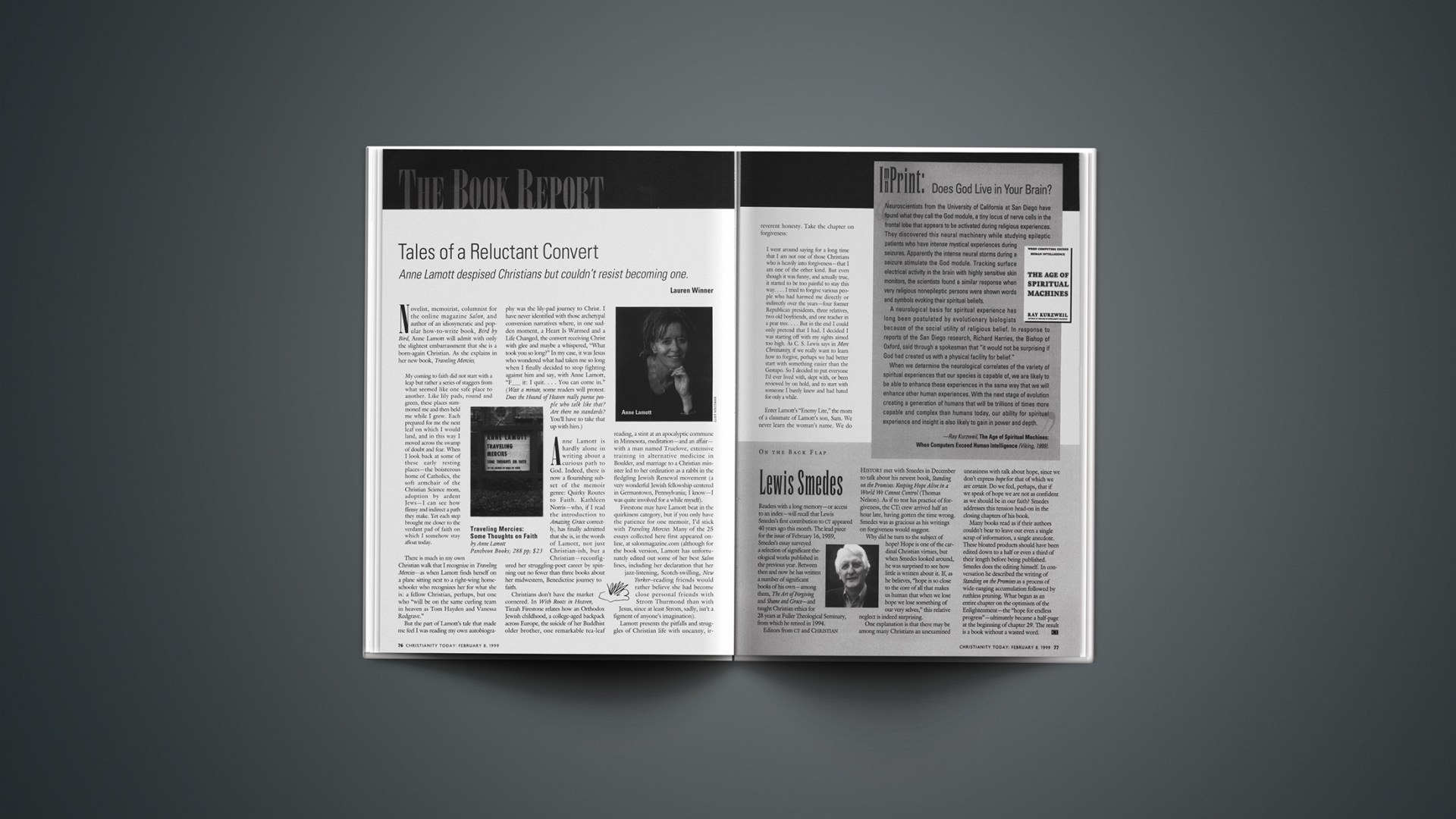Readers with a long memory-or access to an index-will recall that Smedes’s first contribution to CT appeared 40 years ago this month. The lead piece for the issue of February 16, 1959, Smedes’s essay surveyed a selection of significant theological works published in the previous year. Between then and now he has written a number of significant books of his own-among them, The Art of Forgiving and Shame and Grace-and taught Christian ethics for 28 years at Fuller Theological Seminary, from which he retired in 1994.
Editors from CT and CHRISTIAN HISTORY met with Smedes in December to talk about his newest book, Standing on the Promises: Keeping Hope Alive in a World We Cannot Control (Thomas Nelson). As if to test his practice of forgiveness, the CTi crew arrived half an hour late, having gotten the time wrong. Smedes was as gracious as his writings on forgiveness would suggest.
Why did he turn to the subject of hope? Hope is one of the cardinal Christian virtues, but when Smedes looked around, he was surprised to see how little is written about it. If, as he believes, “hope is so close to the core of all that makes us human that when we lose hope we lose something of our very selves,” this relative neglect is indeed surprising.
One explanation is that there may be among many Christians an unexamined uneasiness with talk about hope, since we don’t express hope for that of which we are certain. Do we feel, perhaps, that if we speak of hope we are not as confident as we should be in our faith? Smedes addresses this tension head-on in the closing chapters of his book.
Many books read as if their authors couldn’t bear to leave out even a single scrap of information, a single anecdote. These bloated products should have been edited down to half or even a third of their length before being published. Smedes does the editing himself. In conversation he described the writing of Standing on the Promises as a process of wide-ranging accumulation followed by ruthless pruning. What began as an entire chapter on the optimism of the Enlightenment-the “hope for endless progress”-ultimately became a half-page at the beginning of chapter 29. The result is a book without a wasted word.










